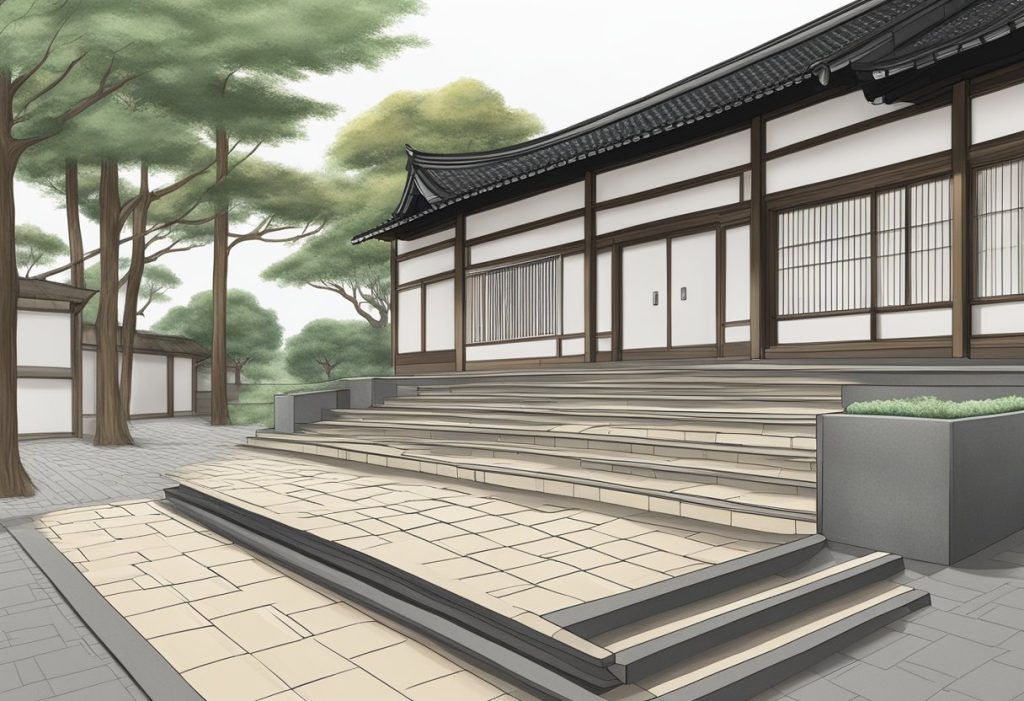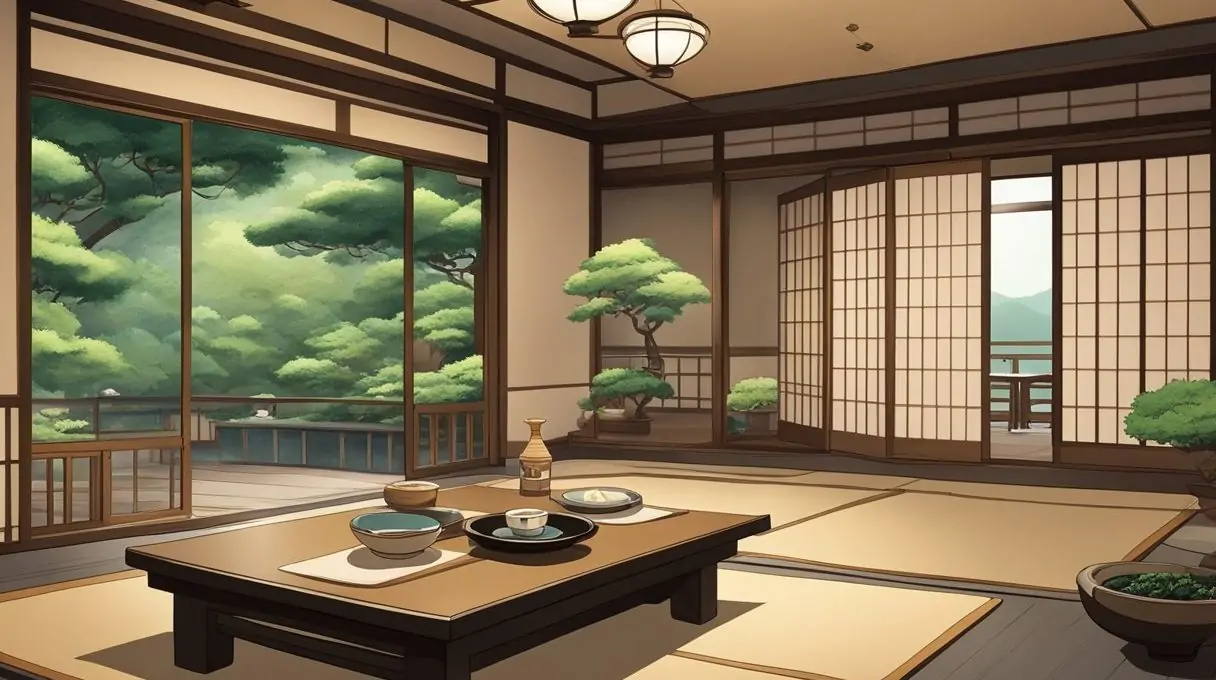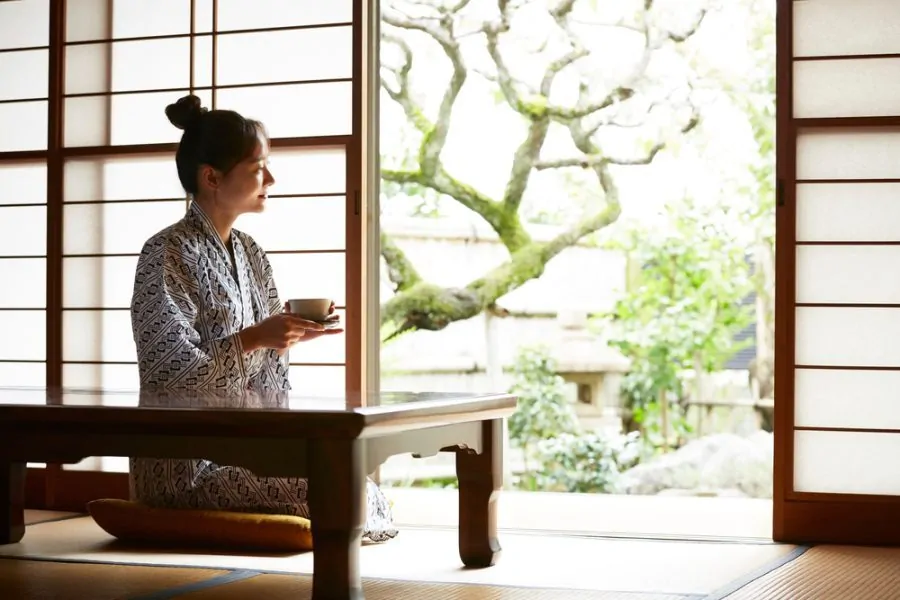Traveling to Japan offers a unique experience largely due to the country’s distinct range of accommodations that cater to different preferences and budgets. From traditional ryokans and bustling capsule hotels to serene temple lodgings, Japan provides a plethora of choices for travelers seeking a place to stay. Each type of accommodation offers a different slice of Japanese culture, ensuring every traveler can find a match for their desired experience.

Finding the right accommodation can significantly enhance your travel experience in Japan. For those looking to immerse themselves in Japanese traditions, a stay in a ryokan complete with tatami floors and futon beds might be a perfect choice. On the other end, capsule hotels offer a modern, budget-friendly option with a unique twist. It’s essential to consider location relative to your travel itinerary, the cultural experience you wish to have, and the amenities offered when booking your stay. Ensuring that your chosen lodging aligns with your budget, preferences, and travel needs will pave the way for an unforgettable visit to Japan.
Key Takeaways
- Japan’s accommodations range from traditional to modern, affecting the overall cultural experience.
- The location of your stay should align with your itinerary and travel preferences.
- Choose a place that balances cultural immersion, desired amenities, and budget considerations.
Types of Accommodation in Japan

Japan offers a wide variety of accommodations that cater to different preferences and budgets. We’ll guide you through some of the most common types of places to stay, from luxurious hotels to unique capsule hotels.
Hotels
In Japan, hotels range from budget to luxury, providing options for every traveler. Hotels in Japan often offer high-quality service, with even lower-priced ones maintaining good standards of comfort.
Ryokan
Ryokan are traditional Japanese inns, offering an immersive experience of Japanese culture and hospitality. They typically feature tatami-matted rooms, communal baths, and intricate Japanese cuisine.
Minshuku
Similar to ryokan but more family-oriented, minshuku are often family-run and offer a home-like atmosphere. They provide a more casual, intimate lodging experience.
Hostels
Hostels are a perfect choice for budget travelers and backpackers. They often feature dormitory-style rooms and are a great place to meet other travelers.
Business Hotels
Business hotels are catered towards business travelers, prioritizing efficiency and convenience. These hotels are streamlined for comfort and functionality, often located near train stations or business districts.
Capsule Hotels
Capsule hotels offer a unique experience where guests sleep in individual pods or capsules. These accommodations are efficient and cost-effective for a night’s stay, particularly popular among businessmen and budget travelers.
Love Hotels
Love hotels are designed for couples seeking privacy. They can be rented for a few hours or overnight and are characterized by their discreetness and themed rooms.
Apartments
Apartments for rent can range from compact studios to family-sized accommodations. Renting an apartment is a practical long-term option, offering the comforts of home.
Temple Lodgings
Staying at temple lodgings, or shukubo, allows for a spiritual experience. Guests can participate in temple activities and enjoy vegetarian cuisine.
Traditional Japanese Inn
A traditional Japanese inn, or ryokan, often located in scenic areas, focuses on providing an authentic Japanese experience. Guests can enjoy hot spring baths and traditional tatami rooms.
Choosing a Location

When planning a trip to Japan, selecting the right location is crucial. We’ll focus on accessibility, local attractions, and the unique charm of each area to guide you through prominent destinations like Tokyo and Kyoto, as well as hidden gems in other prefectures.
Tokyo
In Tokyo, Shibuya is a bustling hub with numerous hotels near the famous crossing. Using the extensive public transit, travelers can easily access Shinjuku, Ginza, and other districts. Historical sites like Asakusa and electrifying Akihabara are also within reach.
Kyoto
Kyoto embodies the traditional spirit of Japan. Staying near Gion offers an authentic experience with easy access to historic temples and UNESCO World Heritage Sites. Do not miss the tranquility of Arashiyama and the iconic Fushimi Inari Shrine.
Osaka
Known for its vibrant food scene, Osaka provides a great base for exploring Dotonbori and Shinsaibashi. Osaka Prefecture also includes Hakone, renowned for its hot springs, and Koya-san, a serene spiritual retreat.
Hokkaido
Sapporo, the capital of Hokkaido, boasts a variety of accommodations ideal for visiting the Sapporo Snow Festival. For ski enthusiasts, the powder snow of Niseko is unparalleled.
Okinawa
Choose Naha in Okinawa for a tropical vacation. Here, you can enjoy the unique Ryukyu culture and explore the picturesque Yaeyama Islands. Okinawan beaches are perfect for relaxation and water sports.
Other Prefectures
Japan’s other prefectures offer their own allure. Kanazawa in Ishikawa beckons with its beautiful gardens, whereas Hiroshima provides a rich historical context. Fukuoka is a foodie’s haven, and the hot springs of Kumamoto, Saga, and Gunma are not to be missed. For an off-beat experience, venture to the alpine city of Takayama in Gifu or the serene landscapes of Aomori to the north.
Cultural Experience

When traveling to Japan, immersing ourselves in authentic cultural experiences is crucial. We find ourselves engaging more deeply with the traditions through our choices of accommodation and dining, which are integral to the Japanese way of life.
Traditional Stays
Ryokans, traditional Japanese inns, offer more than just a place to sleep; they are a gateway to Japanese hospitality and culture. In a ryokan, we sleep on futons laid out on tatami mats, and often have the opportunity to enjoy onsen (natural hot springs), which are a staple of Japanese relaxation and cleanliness. For the complete experience, donning a yukata (light cotton kimono) after bathing adds to the indulgence in tradition.
Temple Stays
Under temple stays, we discover serenity and simplicity. Participating in the daily life of Buddhist monks provides us with a chance to experience shojin ryori, traditional Buddhist vegan cuisine, and to reflect upon life in a peaceful setting. These stays, often located in or near noteworthy temples and monuments, connect us with Japan’s spiritual heritage. To learn more about these stays, the Japan National Tourism Organization offers insights into various heritage accommodations, including temple lodging options.
Japanese Cuisine
Japanese cuisine, known locally as washoku, presents an array of flavors often emphasizing seasonality and regional specialties. Our dining experience involves more than just food; it’s a cultural journey through taste. From bustling shopping districts offering street food to high-end restaurants presenting meticulously prepared dishes, every meal is a chance to appreciate the delicate balance and harmony championed in Japanese culinary traditions. Unique dining settings such as those found in ryokans or temples complement the experience with their focus on cleanliness, culture, and culinary artistry.
Budget and Booking

In this section, we’ll take a closer look at understanding accommodation prices in Japan, finding the best deals, and sharing some pointers on making reservations to ensure your stay is as smooth and cost-effective as possible.
Understanding Prices
Accommodation prices in Japan can vary widely based on location, type, and timing. Hostels and dormitories typically range from 1,500 to 3,000 yen per person. These are found mostly in larger cities and offer a mix of shared and private rooms. For a more private experience, business hotels often provide small yet functional rooms, with prices usually starting around 5,000 yen per night. Luxury hotels or ryokans, traditional Japanese inns, can be significantly more expensive, with prices ascending into the tens of thousands per night. Always check whether prices are per person or per room, as this can greatly affect our overall budget.
Finding Deals
To maximize savings, we look for booking platforms that offer competitive rates. Promotional deals can be spotted on websites like Agoda, where various accommodations may be available at discounted prices. It’s beneficial to compare these listings with other trustworthy travel and accommodation websites to secure the best deal. Moreover, user preferences and traveller ratings on platforms like TripAdvisor can guide us towards establishments that offer the best value for money within our budget.
Reservation Tips
To ensure availability, especially during peak seasons or in popular destinations, it’s prudent that we book as far in advance as possible. Accommodation booking popularity spikes during cherry blossom season and year-end holidays. For the most seamless booking process, we should:
- Prioritize our preferences (location, price, amenities)
- Utilize reliable booking platforms or the hotels’ official sites
- Be flexible with dates if possible to take advantage of lower rates
- Carefully read cancellation policies to avoid unexpected charges
By keeping these strategies in mind, we can manage our accommodation plans effectively, staying within budget while still enjoying the qualities of Japan that matter most to us.
Amenities and Services

In Japan’s diverse accommodation landscape, we find a range of amenities and services that cater to all forms of comfort and convenience. From the necessity of in-room Wi-Fi to the luxury of on-site spas, each establishment offers a unique blend to enhance our stay.
On-site Facilities
Capsule hotels are a marvel of efficiency, often including lockers for personal belongings and communal bathrooms. Meanwhile, hostels and dormitories, such as those aligned with Hostelling International, frequently offer communal kitchens, lounges, and sometimes even laundry services. Ryokans, exemplifying traditional Japanese style, might feature onsen spas for a quintessential Japanese experience.
- Lockers: Typically available in both capsule hotels and hostels.
- Spas: Commonly found in ryokans and high-end hotels.
- Laundry: Available in many hostels and some guesthouses.
Room Types
Accommodations in Japan range from the compact capsule hotels to spacious family rooms in guesthouses. Traditional ryokans will have us sleep on futons laid out on tatami mats, providing an authentic Japanese experience. Hostels offer budget-friendly dormitories or private rooms, and B&Bs and pensions often come with the coziness of a home including ensuite bathrooms.
- Capsule: A bed-sized space for sleeping, often stacked side by side and on top of each other.
- Family Room: Larger rooms in guesthouses or hotels designed for group or family stays.
- Japanese Style: Rooms with futons and tatami flooring typically found in ryokans.
Dining Options
Food is an integral part of the travel experience in Japan. Many accommodations, from ryokans to pensions, offer meals that introduce us to local delicacies. Whether it includes a kaiseki dinner at a ryokan or a simple breakfast at a hostel, the focus is always on fresh, local ingredients. For those who prefer international or specific dietary cuisines, establishments in urban areas usually have a wide range of restaurants nearby.
- Japanese style: Traditional meals often served in ryokans or guesthouses.
- Western style: Common in international hotels and some B&Bs.
- Location: Urban accommodations often boast close proximity to a variety of restaurants.
Accessibility and Considerations

When it comes to finding accommodation in Japan, we prioritize both accessibility and thought for diverse needs, ensuring a comprehensive and worry-free experience for all travelers.
For International Travellers
Location & Transportation: We ensure our recommended accommodations are strategically located near major train stations, aiding in smooth and efficient travel within Japan. For international guests, ease of access to public transportation is a crucial aspect of travel, and we consciously select accommodations that meet this requirement.
Youth Hostels & Partners: We work with multiple accommodations suitable for youth hostels and budget stays that are renowned for their hospitality towards foreigners. These options often include essential amenities and are perfect for those planning longer stays.
Special Needs and Preferences
Japanese Style Rooms: For those who wish to experience authentic Japanese lodging, we have listed accommodations offering Japanese style rooms, complete with tatami floors and futon bedding. These selections prominently feature modern amenities and, where available, an ensuite bathroom for your convenience.
Accessibility Features: Recognizing the diverse needs of our travelers, we’ve included options with enhanced accessibility features. This is to ensure that those requiring additional support, such as guests with mobility issues or other special needs, can navigate and enjoy their stay without barriers.
Travel and Proximity

When we explore Japan, the ease of travel and proximity to various attractions significantly enhances our experience. Efficient public transportation networks and strategically located accommodations provide seamless access to city centres, historical temples, and natural wonders like Mount Fuji.
Public Transportation
Japan’s public transportation is renowned for its punctuality, cleanliness, and coverage. Major cities boast extensive train and subway networks, with hubs like Tokyo’s Shinjuku Station and Osaka’s Umeda Station offering connections to every part of the city and beyond. Visitors can rely on the Shinkansen, or bullet train, for rapid transit between cities. The Shinkansen’s network ensures that even distant attractions remain well within reach, efficiently connecting us to both city centres and regional destinations.
Access to Attractions
Our access to Japan’s myriad attractions is largely influenced by proximity to train stations. In Kyoto, accommodations near Kyoto Station make it easy for us to visit the iconic Kinkaku-ji Temple or Fushimi Inari Shrine. In Tokyo, staying near a Yamanote Line station can be a strategic choice, as this line circles important districts, monuments, and multiple other lines for broader exploration. This strategy ensures prime access to renowned districts such as Shibuya and Akihabara.
Proximity to Nature
Despite Japan’s bustling urban landscapes, natural sanctuaries are never far away. Many accommodations, especially ryokans (traditional inns), are situated near serene settings such as lakes, parks, or hot springs. For instance, staying in the Hakone region allows for magnificent views of Mount Fuji and easy access to natural hot springs. Similarly, ryokans in the city of Nikko position us close to both sacred shrines and the scenic beauty of Lake Chuzenji and Kegon Falls. By selecting our stay with nature in mind, we ensure a tranquil retreat from the city’s pace while still enjoying the convenience of nearby transportation.
Frequently Asked Questions

When planning a stay in Japan, we’re often faced with a variety of accommodation options, each with different price points and cultural experiences. Let’s address some common queries to help make your stay as comfortable as possible.
What are the typical costs of different types of lodgings in Japan?
In Japan, accommodation prices vary widely. A night in a capsule hotel may cost as little as 2,000-5,000 JPY, while mid-range hotels typically charge between 10,000-20,000 JPY per night. Traditional ryokans can range from 15,000 to 50,000 JPY per night, depending on their luxury level and location.
How can I find affordable accommodations in Japan?
To find affordable accommodations in Japan, consider staying in guesthouses, hostels, or capsule hotels. Booking in advance, staying outside of city centers, or opting for accommodation without full-service amenities can also reduce costs.
What are some recommended areas to stay in while visiting Japan?
For first-time visitors, staying in central areas of major cities like Tokyo’s Shinjuku or Shibuya, Kyoto’s Gion, or Osaka’s Namba is recommended. These areas offer convenient access to transportation, dining, and entertainment.
Can you explain the differences between a Ryokan and other forms of accommodation in Japan?
A Ryokan is a traditional Japanese inn offering a unique cultural experience with tatami floors, futon beds, and often, communal baths. Ryokans differ from hotels in their emphasis on hospitality, traditional design, and inclusion of meals in the stay.
What should students look for when seeking long-term accommodation in Japan?
Students seeking long-term accommodation in Japan should prioritize proximity to their university, affordability, and access to public transportation. Share houses and apartments are popular options, with utilities sometimes included in the rent.
What are some tips for choosing the ideal location for my stay in Japan?
Consider your primary activities, such as sightseeing, work, or study. Select a location that strikes a balance between convenience, access to public transport, and your budget. Research the personality of neighborhoods to ensure they align with your preferences for peace or vibrancy.





Leave a Comment